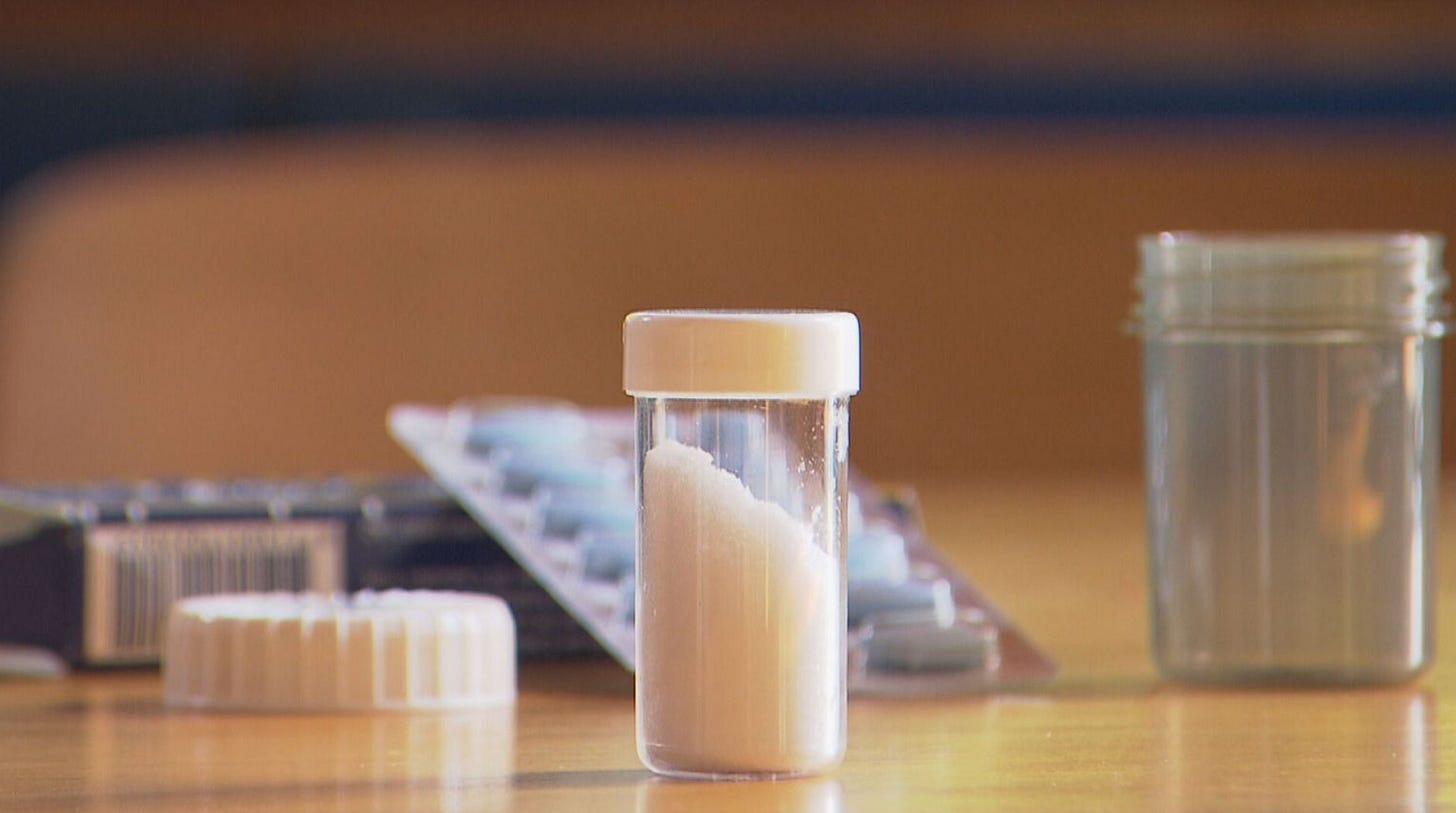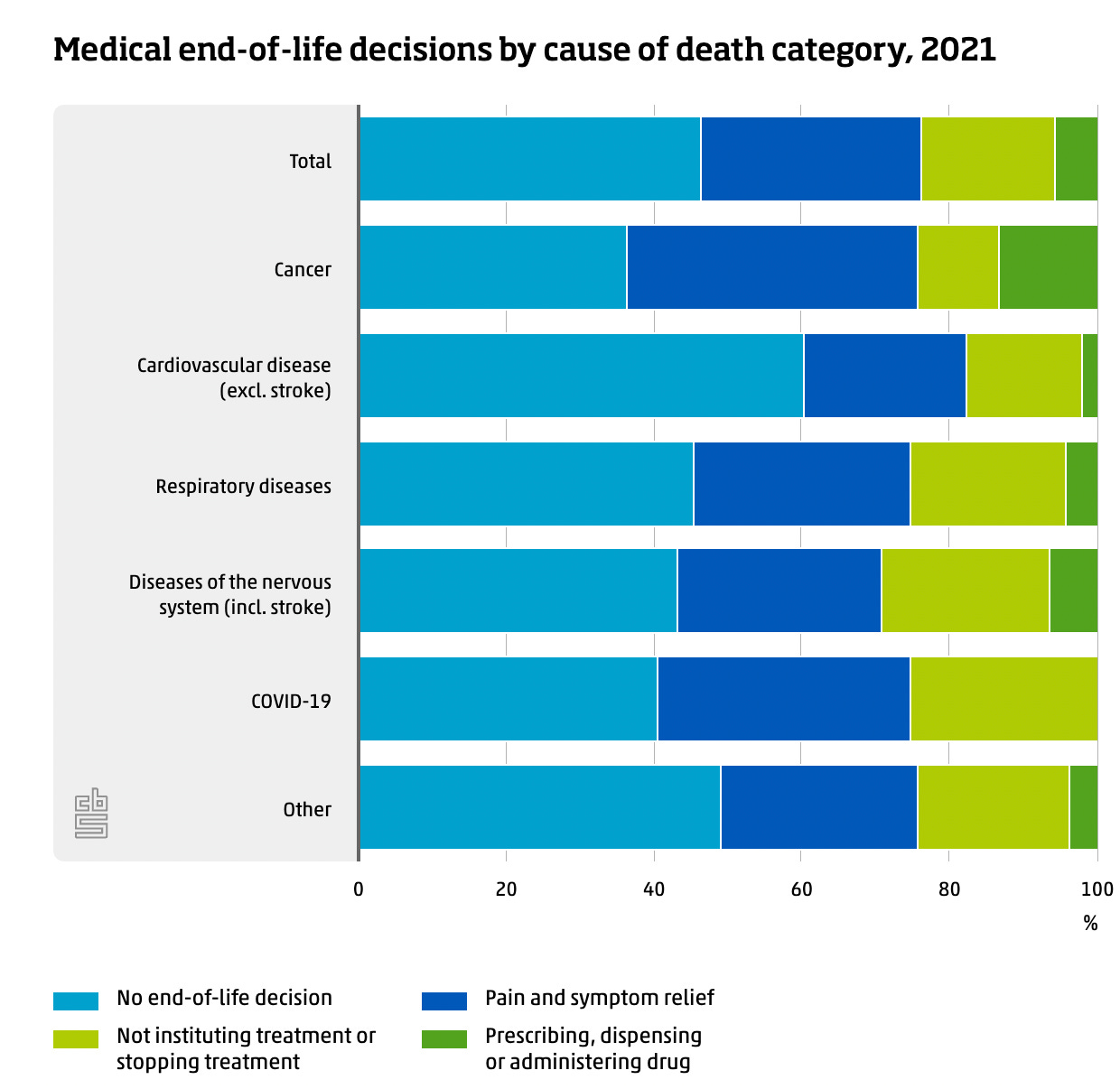Why a black market for suicide drugs is exploding in the Netherlands
Euthanasia is more complex than ever

Last week Alex S., a thirty year-old man from Eindhoven, was sentenced to two years in prison for providing the suicide powder “Drug X” to ten people who used it to take their own lives. It was the first verdict against a provider of Drug X; the Public Prosecution Service is currently investigating twelve others, including Brabant Psychologist Wim van Dijk, who confessed to the Volkskrant in 2021 that he had provided Drug X to over 100 people.
S. sold or gave away Drug X, and an anti-nausea medication necessary to keep it down, to a further 1600 people.
Why would a black market for suicide drugs provided by these “suicide cowboys” be thriving in the Netherlands, the first country in the world to legalize euthanasia in 2002?
If you are struggling with thoughts of suicide, talking helps.
Call 113, 0800-0113, or chat on www.113.nl.
Life expectancy

As people live longer they are less likely to die acutely from something like a heart attack or an infection. At the end of their lives they are sick longer, often with multiple chronic illnesses.
And medical developments mean that physicians can keep people alive for a long time.
“Someone just drops dead, without anyone seeing it coming, that really happens very little,” an intensive care doctor told the NRC.
The dealer

S.’ provision of Drug X to others is legally considered “assisted suicide,” a crime in the Netherlands—different than highly-regulated euthanasia.
When S. first appeared in court in 2021, he explained his position:
I believe that everyone should be allowed to decide what they can do with their own bodies. We are not owned by anyone else, we are allowed to determine our own destiny.
During the trial this month, when the judge asked S. if he questioned the people who ordered Drug X from him to determine whether or not he thought it was appropriate to aid in their deaths, S. said:
People do not have to justify their suffering. I think it should be an autonomous decision.
The drug
Drug X is a preservative that can be purchased from chemical wholesalers. It comes as a powder; dealers like S. package it in capsules.
Cooperative Last Will (CLW), an advocacy organization for self-determination in death, brought Drug X to the attention of the public in 2017, claiming that it causes “humane” death, although this has now been widely disputed.
In 2021, the Volkskrant published a harrowing report on people who have committed suicide by taking Drug X. Eyewitnesses to their deaths reported cramps, convulsions, screaming, seizures, etc. With Drug X it takes half an hour to lose consciousness and an hour and forty-five minutes to die.
Physician-assisted euthanasia, on the other hand, is generally understood to be painless. Patients are given an IV sedative that puts them into a deep sleep, then a drug that paralyses the respiratory muscles and heart. Death is immediate.
The medical doctors

In half of all 171,000 deaths in the Netherlands in 2021, a medical decision—like pain relief, euthanasia, or stopping treatment—was made.
That year about 9,000 deaths in the Netherlands were the result of euthanasia, mostly in the cases of “unbearable and hopeless” suffering in terms of physical problems or disease, especially cancer, which accounted for about thirteen percent of these deaths.
The psychiatrists
It’s much harder to get approved for euthanasia in the case of unbearable psychological suffering.
Every year, about 2,000 psychiatric patients ask their doctors for help to end their lives, while psychiatrists are becoming increasingly less likely to approve euthanasia.
In 1995, 53 percent of psychiatrists thought it was ‘unthinkable’ to ever perform euthanasia; in 2016 this number fell to 63 percent. The number of psychiatrists who perform euthanasia is also falling: from 51 in 2021 to 32 in 2022.
As psychiatrist and euthanasia researcher Sisco van Veen from Amsterdam University Medical Centers told Een Vandaag:
In psychiatry it is incredibly complicated to determine when you have done enough. It is very common for people to come to us in a hopeless condition, and it is actually the basis of our profession is to give them perspective counter to all of the hopelessness.
And you must not forget that suicide prevention… is one of the core tasks of the Mental Health Care Service.
The patients
A extensive report on euthanasia from the NRC found shifting attitudes about dying amongst elderly people and their families.
“The average contemporary elderly person is mature, well-versed in medical options and their rights. It is a generation that has enforced control over its own body and death. During their lifetime, abortion became legal, euthanasia became an option.”
A palliative care nurse told the newspaper that when she started her working thirty years ago, relatives reacted to dying differently. “If someone became restless, people knew that was part of it. Now they don't want to see the suffering anymore.”
The public

According to an Een Vandaag poll, 93 percent of people believe that euthanasia should be possible in the case of “serious and hopeless suffering.”
Only 71 percent of people support euthanasia in the case of psychiatric suffering.
The bureaucrats
Psychiatrists and physicians are effectively bureaucrats charged with implementing the euthanasia law.
The Dutch bureaucratic state thrives on inflexibility; it wants to assign people into rigid categories in order to efficiently administer benefits to them. All bureaucracy works this way to some extent, but the Dutch system is particularly rigid; it’s much harder to finesse the Dutch system than, say, the American one.
This rigidity is why things in the Netherlands can run so smoothly for people who fit into categories defined by legislation, or designed by civil servants, and life can become a nightmare if you fall outside the box.
It’s hard to imagine a grayer, less rigid definition than that of “unbearable and hopeless suffering.” Especially psychological suffering.
And it’s no wonder that doctors, of all people, of all bureaucrats, struggle with administrating euthanasia; the moral underpinning of their vocation is keeping people alive.
Some ways forward
Euthanasia Expertise Center psychiatrist Kit Vanmechelen told the Volkskrant she thinks “we in the Netherlands can reduce the number of suicides by hundreds per year if we as psychiatrists are prepared to perform more euthanasia on people who are suffering psychologically.”
Wim van Dijk, another provider of Drug X, thinks the solution is to remove the doctor from the euthanasia process, and hopes to establish an institute that trains end-of-life counsellors, who determine whether requests are “voluntary and well-considered.”
An op-ed in the Nederlands Dagblad, a Christian newspaper, took a different approach in light of Alex S.’ conviction for Drug X.
In people's perceptions, active termination of life could be seen as normal medical procedure—even though it is not in fact one. Wouldn't it be better to place the responsibility entirely on the person with the death wish? All things considered, the answer to this is no. Euthanasia practice in the Netherlands—whatever you may think of it—is the result of a long social and political discussion. And vulnerable people are safer in the hands of a doctor trained primarily to be on the side of life than in the hands of someone who wants to help others, either professionally or voluntarily, to end their lives.
Sisco van Veen, UMC researcher, argues that in the case of psychological suffering, psychiatrists should take a retrospective view (the patient’s history) instead of a prospective view (the chance that the patient may improve in the future.)
Going forward in the Netherlands, people who want euthanasia will remain determined to access it.
Physicians as human beings will always struggle with the “tension between the duty to alleviate suffering and the duty to not actively terminate life.”
And the Dutch bureaucratic state will carry on—creating new euthanasia guidelines, prosecuting “suicide cowboys,” and handing out reprimands to psychiatrists—fundamentally unequipped to manage the vagueness of the definition of “hopeless and unbearable suffering,” and defining anyway, as the law requires.
🥳 Leuke Dingetjes
A nice groove from Amsterdam-based DJ TECH IT DEEP.
Podcast rec
I’m a couple of episodes into this podcast about the Dutch criminals at the center of the European drug trade. It provides some interesting background into a lot of the drug-crime headlines you see in Dutch news these days.
*all typos in this post are definitely deliberate



